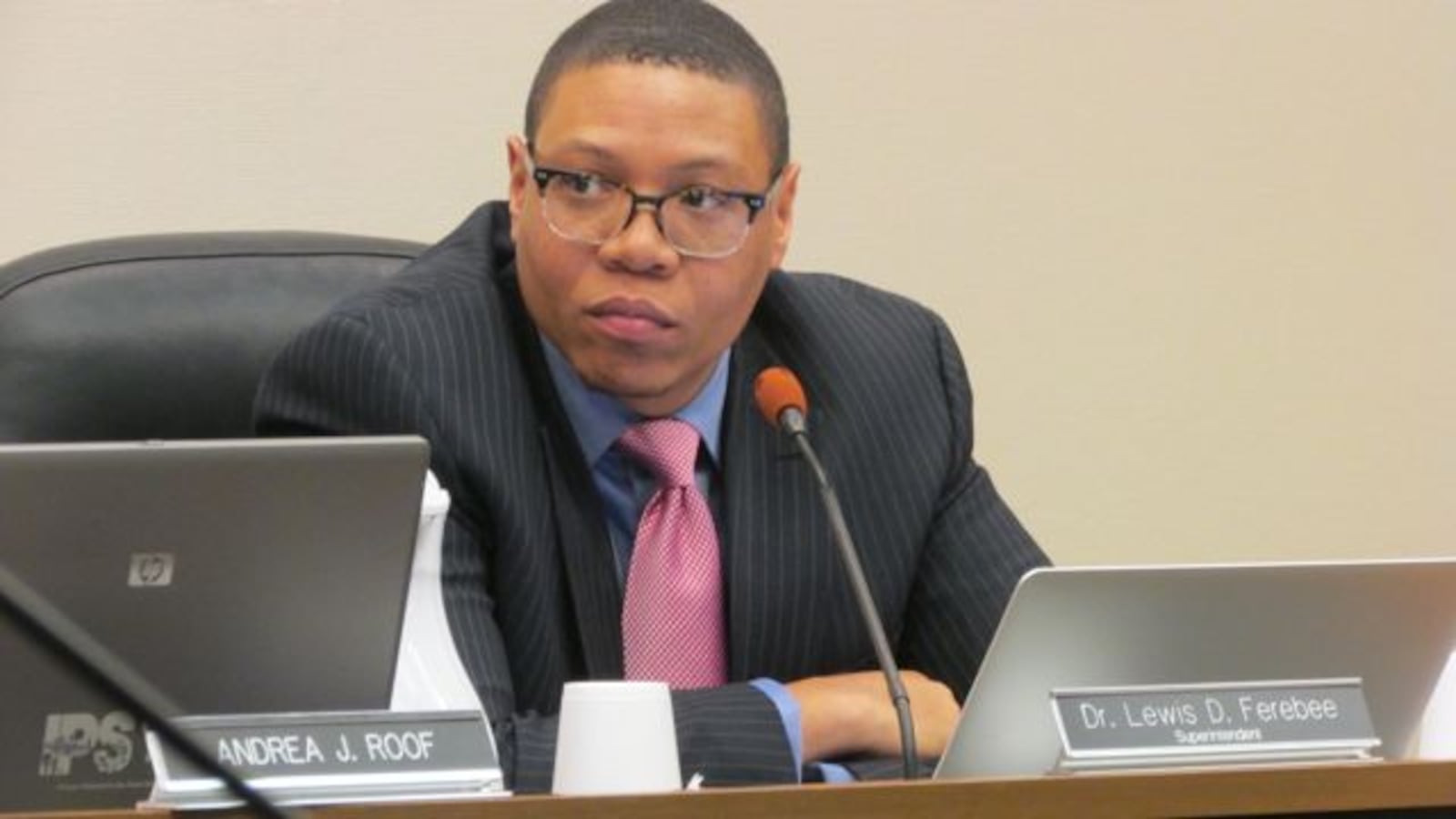The $30 million deficit Indianapolis Public Schools has been bemoaning for nearly a year doesn’t exist, new Superintendent Lewis Ferebee said today.
In fact, Ferebee told the school board, IPS ended 2013 with an $8.4 million surplus.
Based on his own analysis, corroborated by the district’s attorneys and an accountant, Ferebee concluded the deficit was a phantom and speculated that IPS’s prior administration “intentionally overstated expenses to protect our cash balance,” he said.
“I’m at a point now where I feel like I have enough information to confirm that we don’t have a structural deficit,” he said. “I think it’s important to be transparent with the community.”
The revelation comes as IPS approaches its budget-making season and may instantly relieve the need for drastic cuts the school board was expected to consider to try to rein in what it believed to be massive overspending. In other words, it could keep schools open, save teachers’ jobs and keep programs that benefit students from being cut.
“I sought counsel from our legal counsel and also the CPA of our legal firm,” Ferebee said. “They said, ‘you’re not crazy. We see some of the same things.’ ”
In recent years under former Superintendent Eugene White, the district made nearly annual announcements of deficits, which led to layoffs, pay freezes and cuts in programs and services for students. Ferebee said he believed those reports of deficits were designed to quietly keep a strong cash balance to cover any unexpected expenses that might otherwise be difficult to address during the school year. Board members and the public were led to believe IPS was falling short financially, he said. White and former interim Superintendent Peggy Hinckley said late Tuesday they were skeptical of Ferebee’s analysis.
Ferebee said he believed the practice went back years. Without naming names he also said he expected unspecified “personnel changes” would be one of the results of his investigation.
Last year, interim Superintendent Peggy Hinckley raised alarms about the deficit, suggesting IPS would have to consider closing as many as 10 schools to get its spending under control. Hinckley, who was replaced by Ferebee in September, predicted IPS would have to tap reserve funds to make it through this school year.
But Ferebee said he discovered a disconnect when he began digging into IPS’s financial position during the district’s winter break in December. The numbers didn’t add up, he said.
What he found, Ferebee said, was the district’s budgeting system was entirely disconnected from its actual spending and income. To make the budget, Ferebee said, IPS used estimated revenues and included in its spending plan a host of programs and initiatives that were more speculative than real.
For example, Ferebee said IPS included in its budget in recent years the creation of a science and technology magnet high school, setting aside dollars for a school that was never launched. The school board, he said, was unaware that this money was not being spent, even at year’s end. Board members were never shown the difference between what budgeted and what was actually spent.
IPS’s budget projected revenue of $244 million and $274 million in spending for the calendar year that just ended in December of 2013. The $30 million difference was the deficit that district officials repeatedly said since last spring needed to be closed, and which prompted Hinckley’s call for school closings.
But at the end of the year, Ferebee said, the actual spending number was quite different. While revenue was close to the projection at $246.2 million, spending was much lower at only $237.8 million, resulting in an $8.4 million surplus, not a deficit.
“I had a lot of emotions,” Ferebee said of his reaction once he was certain his numbers were right. “It was very disappointing for me that we were communicating we had a budget deficit when we actually didn’t.”
A report on IPS’s operations released last month by the Indianapolis Chamber of Commerce referenced the budgeting problem and recommended moving toward a budget based on actual numbers instead of projections. Ferebee said the plan going forward is for monthly reports to the board on actual spending and revenue compared to the budget projections for both.
While the vanishing deficit may be hard to explain to the community, it’s also a golden opportunity to demonstrate a new level of transparency about the district’s decision making, Ferebee said.
For students and teachers, Ferebee said a surplus instead of a deficit means IPS likely will not face school closings or layoffs this year. Ferebee said IPS is entering talks with unions about revamping its compensation system, and the surplus means raises at least could be considered. Most district employees have not had a raise in five years beyond automatic hikes under union contracts that reward added years of experience and additional education credits earned.
For parents and students, it also means IPS can look at how to make changes to try to improve learning, not just focus on ways to save money, Ferebee said.
“This is an opportunity for us to be more strategic in our efforts in terms of how we support students and families and how we improve student outcomes,” he said. “We have a long way to go as it relates to improving student achievement. Knowing that we don’t have a structural deficit definitely opens doors of opportunity for how we support our students.”

